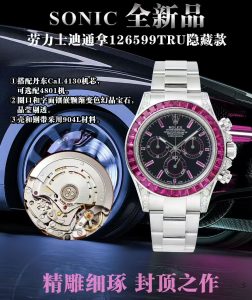The Tudor Black Bay series has long stood as a beacon of quality craftsmanship and classical design within the realm of luxury watches. The latest release, the Tudor Black Bay Harrods 175th Anniversary Edition, is no exception. This watch isn’t just an addition to the Black Bay lineage; it’s a celebration of Harrods’ 175th anniversary, encapsulating the themes of tradition, exclusivity, and the complex interplay of economic and symbolic value.
Celebrating Tradition and Innovation
The Black Bay Harrods 175th Anniversary Edition is not just a timepiece; it’s a narrative woven into the fabric of two storied institutions—the house of Tudor and the iconic luxury department store, Harrods. Limited to just 175 pieces worldwide, this model acts as both a commemoration and a symbol of refined collaboration, reflecting the values and historical significance of Harrods and Tudor alike.
This exclusivity highlights a broader trend in luxury markets: the cultivation of scarcity. By producing only 175 units, Tudor not only enhances the watch’s collectability but also reinforces its status as a luxury item. Here, the concept of luxury is tied intricately to rarity, a perception further amplified by Harrods’ prestigious reputation.
The Economic Reality of Limited Editions
On the surface, the high demand for limited editions like the Harrods 175th Anniversary often translates into immediate sell-outs and a thriving secondary market. However, luxury watches don’t always make sound financial investments. The economic reality is often more nuanced than the surface veneer of glamour suggests.
In the broader context, while limited edition pieces can hold, or even increase, in value, they do so at a variable rate highly dependent on broader market trends, brand perception, and the cyclical nature of fashion. Tudors, in particular, have seen fluctuating values in past years, as noted by various watch market analyses. An investment in a piece like the Harrods 175th Anniversary is as much a bet on the continued allure of the Tudor brand as it is a celebration of Harrods’ history.
Ethics and Exclusivity
The ethical implications of luxury goods are often focused on notions of access and equity. The Harrods 175th Anniversary release prompts questions about the accessibility of luxury. Is it an ethical stance to limit access to such craftsmanship to those with financial privilege? While these pieces may symbolize status and accomplishment for some, they also perpetuate a socioeconomic divide in access to cultural symbols wrapped in luxury branding.
Moreover, the ripple effects of artificial scarcity can inflate market prices and enhance brand prestige, yet they also invite critical reflection on consumer habits and the intrinsic value we ascribe to exclusivity. Here lies the irony: the very quality of rarity, which heightens appeal, also challenges the egalitarian notion of luxury for everyone.
The Influence of Branding
Branding is the lifeblood of luxury timepieces, and Tudor’s collaboration with Harrods underscores this dynamic. The Harrods name itself carries weight, conjuring an image of British sophistication and a storied past. This branding synergy makes the Black Bay Harrods 175th Anniversary Edition a compelling artifact of luxury marketing.
Tudor’s strategy in capitalizing on the Harrods brand equity exemplifies how luxury watches transcend function, entering the realm of artwork and storytelling. This aligns with the brand’s identity as an enduring emblem of sophistication, appealing to collectors who value narrative depth over the utilitarian function.
Personal Value and Consumer Psychology
Owning a limited edition like the Tudor Black Bay Harrods 175th Anniversary Edition can be a profound expression of personal identity. These watches often serve symbolic purposes beyond their aesthetic appeal, acting as badges of achievement, markers of heritage, or even reminders of cherished personal milestones.
However, the role of psychology in purchasing decisions cannot be overstated. The appeal of such a limited edition, despite its price point, plays into consumer psychology’s fundamental desire for distinction and recognition. The same psychological principles apply to the replica watch market, where individuals seek to emulate the appearance of luxury at a fraction of the cost, challenging the exclusivity paradigm and blurring lines between genuine status and perceived affluence.
In conclusion, the Tudor Black Bay Harrods 175th Anniversary Edition is more than just a timepiece; it’s a multifaceted emblem of luxury’s intricate dance with history, economy, and identity. As a beacon of rarity and branding, it prompts us to reflect on our values and motives within the vibrant mosaic of luxury consumerism.




